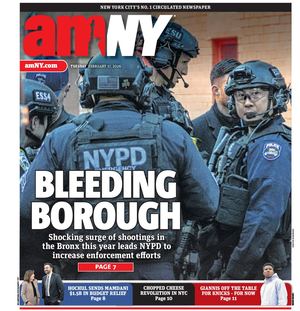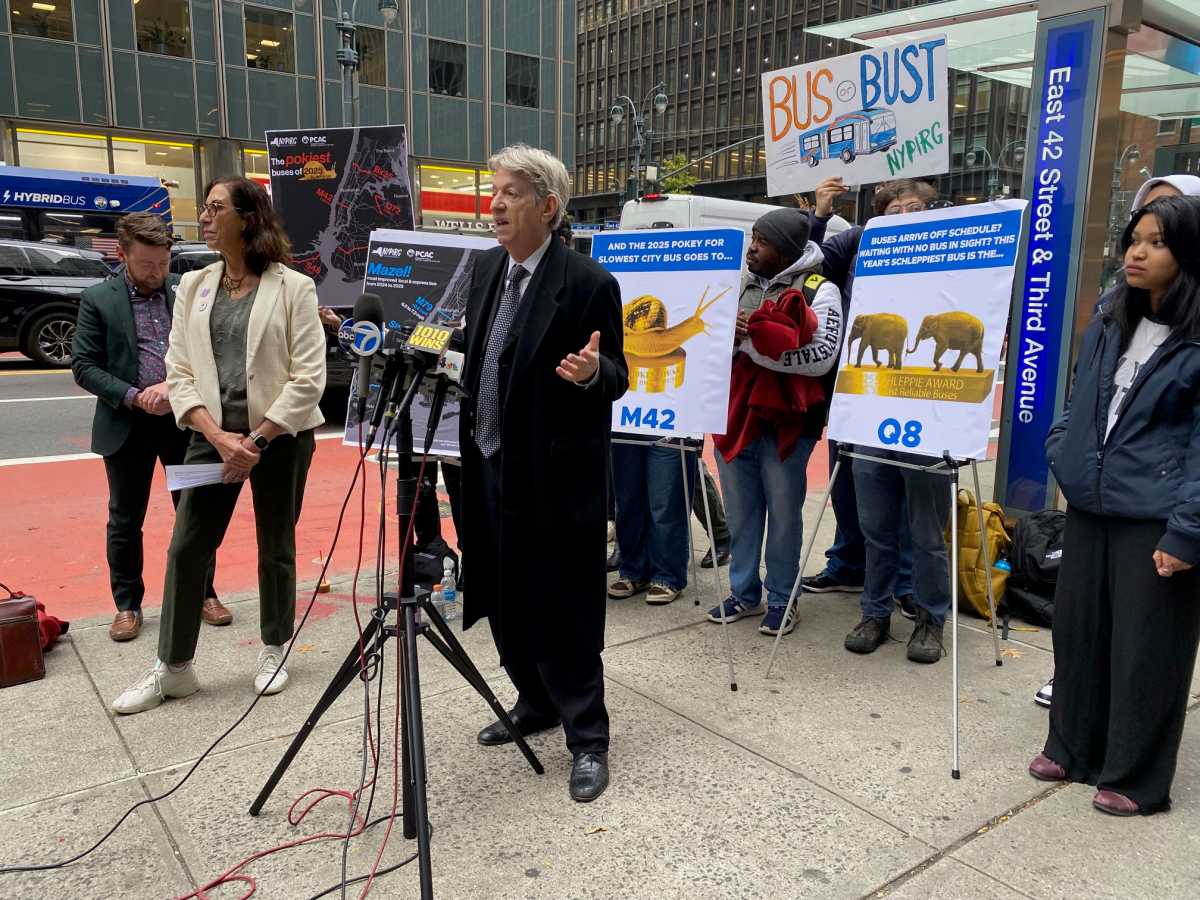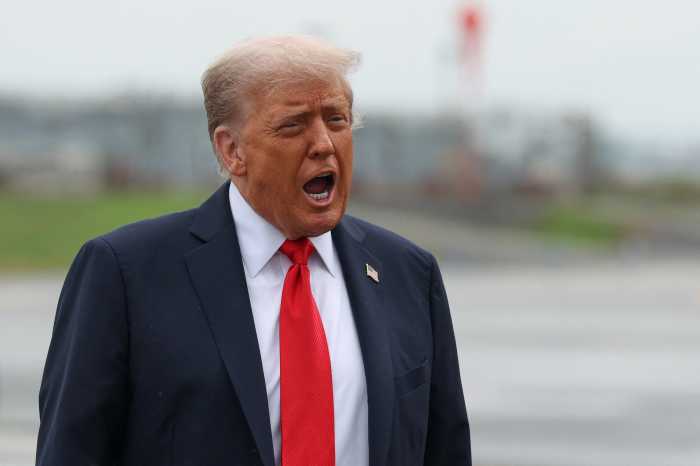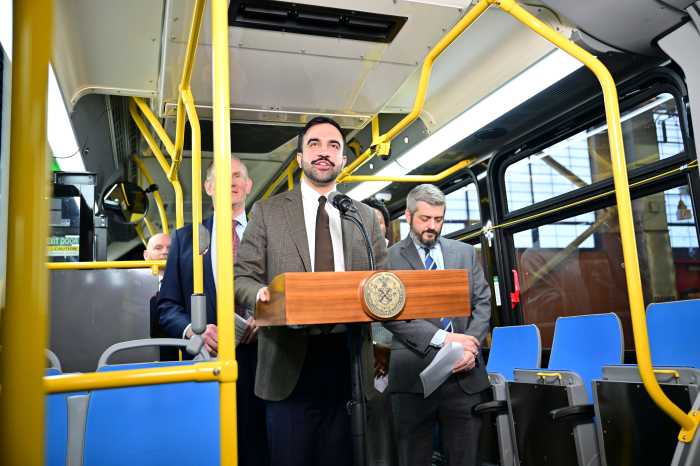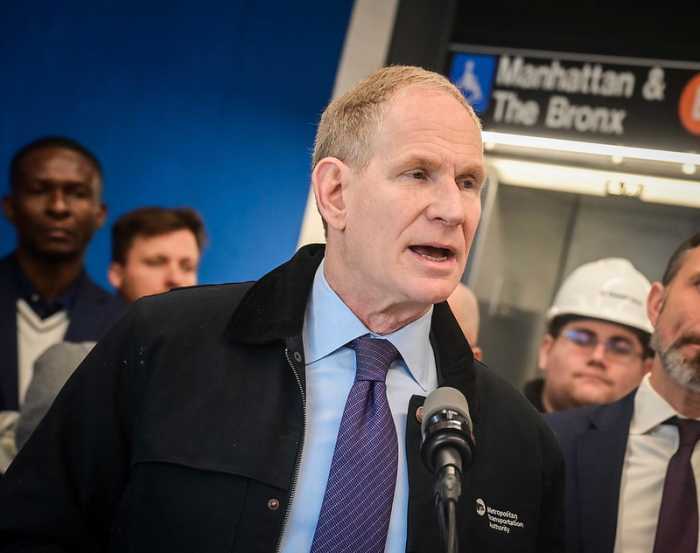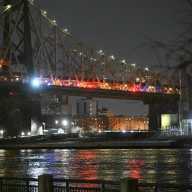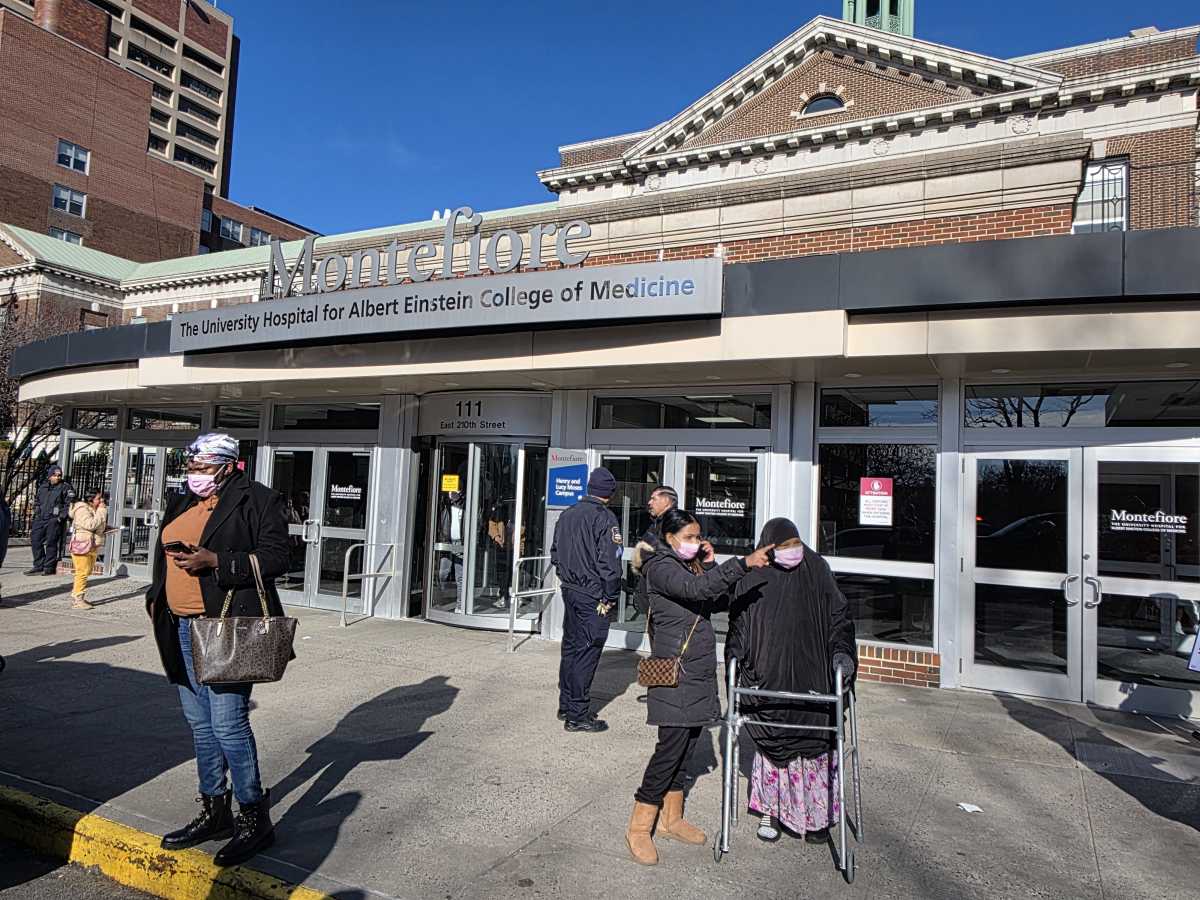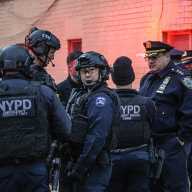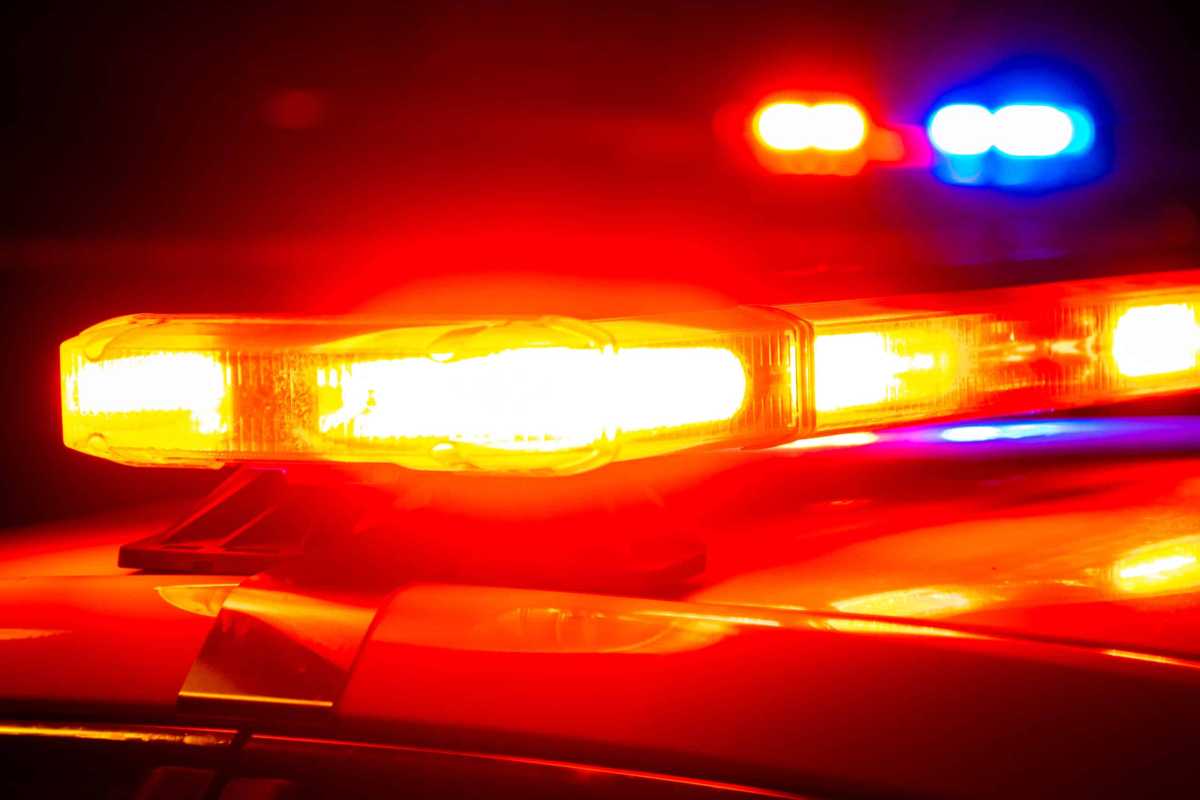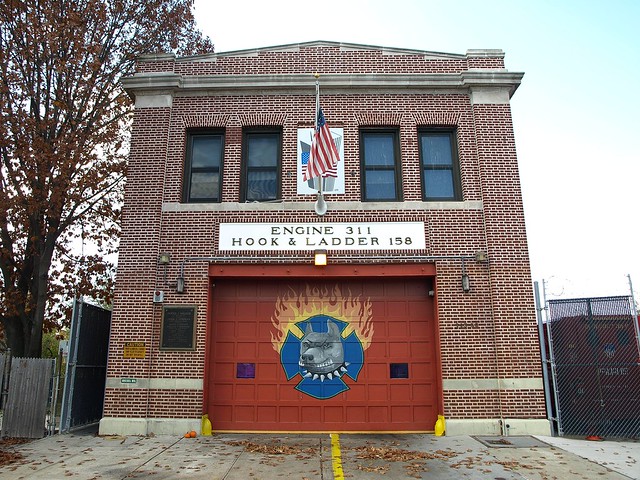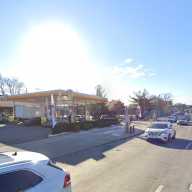Manhattan’s M42 bus is the slowest bus route in NYC. It is so painfully slow, crawling at a mere 5.25 mph — about the speed of the average jogger — that it won an award on Monday.
The crosstown 42nd Street line won this year’s Pokey Award during an annual bus awards ceremony presented by the New York Public Interest Research Group’s (NYPIRG) Straphangers Campaign and the Permanent Citizens Advisory Committee to the MTA (PCAC) in Midtown on Nov. 10.
The 2025 Pokey and Schleppie Awards ranked over 200 bus lines with high-volume ridership based on how slow they roll across the city and how long people have to wait at bus stops.
As for winning the Pokey Award, it’s not something to brag about. A bumblebee, which flies at about 10 mph, can move faster than the M42, transit gurus said.
“The M42 may be moving faster than in 2022 [when the ceremony was last held], but at just over 5 mph, it’s still crawling along,” Natasha Elder, regional director of the NYPIRG Straphangers Campaign, said. “Congestion pricing is helping unclog Midtown, but riders won’t feel real relief until the city pairs it with strong, enforced bus priority projects.”
Organizers of the ceremony, which took place on a sidewalk near the bustling intersection of 42nd Street and 3rd Avenue, said the annual event is designed to “highlight the importance of investing in NYC bus routes,” specifically the ones that test riders’ patience the most.
The Schleppie Award was given to the Q8 in Queens for being the “most unreliable bus,” with riders waiting an average of 3.62 minutes longer than scheduled between buses.
Most improved bus lines in NYC
A new award for the most improved bus service was presented this year. That honor, dubbed the Mazel Award, went to the M79, which increased its speed from 6.63 to 7.25 mph this year.
“This shows demonstrable progress for the bus route,” Lisa Daglian, executive director of PCAC, said.
As a bonus, organizers gave a second Mazel Award to the SIM32, an express bus that treks from Staten Island to Lower Manhattan. Its speed this year improved from 15.1 to 17.1 mph.
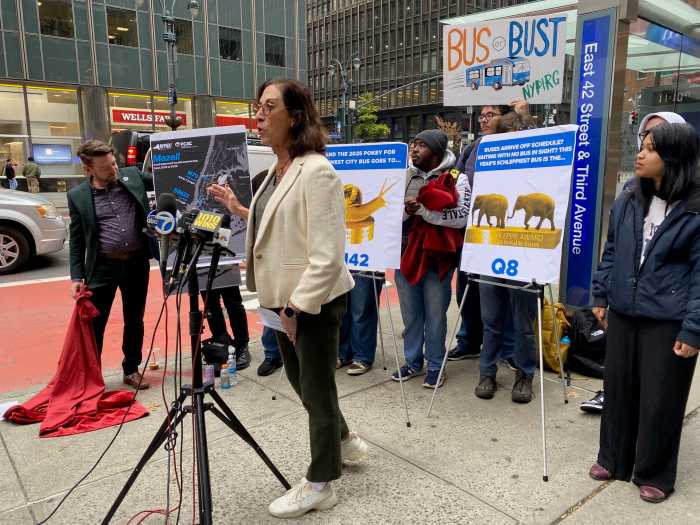
Elder explained that the average speeds of the slowest buses had increased ever so slightly since 2022, which she attributed in part to congestion pricing and bus network overhauls.
While modest gains are worthy of applause, the straphangers called on the MTA and NYC Department of Transportation (DOT) to address the ongoing, concerning problem of slowpoke buses. They suggested expanding dedicated busways and priority bus lanes, both of which are backed by adequate enforcement.
“While congestion pricing and the bus network redesigns have resulted in significant improvements for buses, we continue to need a partner at New York City Hall who will follow the NYC Streets Plan and be responsive to the needs of riders,” Brian Fritsch, associate director of PCAC, said. “By implementing our recommendations, we can, and will, finally achieve bus service that moves faster than a chicken.”
MTA Board member Andrew Albert said the agency is “making great progress” with camera enforcement that cracks down on drivers who illegally drive or park in bus lanes.
John McCarthy, chief of policy and external relations at the MTA, said there are various road impediments blocking the speedy bus service.
“As much as I’d like to accept the award for the M42, it’s really not the bus’ fault,” he said. “The bus wakes up in the morning, and it wants to provide great service, it wants to go fast. That’s what it’s equipped to do. The bus driver wants to drive it quickly. The problem is that things are in the way. It’s the street, it’s the road, it’s the vehicles blocking buses.”
amNewYork contacted the DOT for comment on this story and is awaiting a response.
